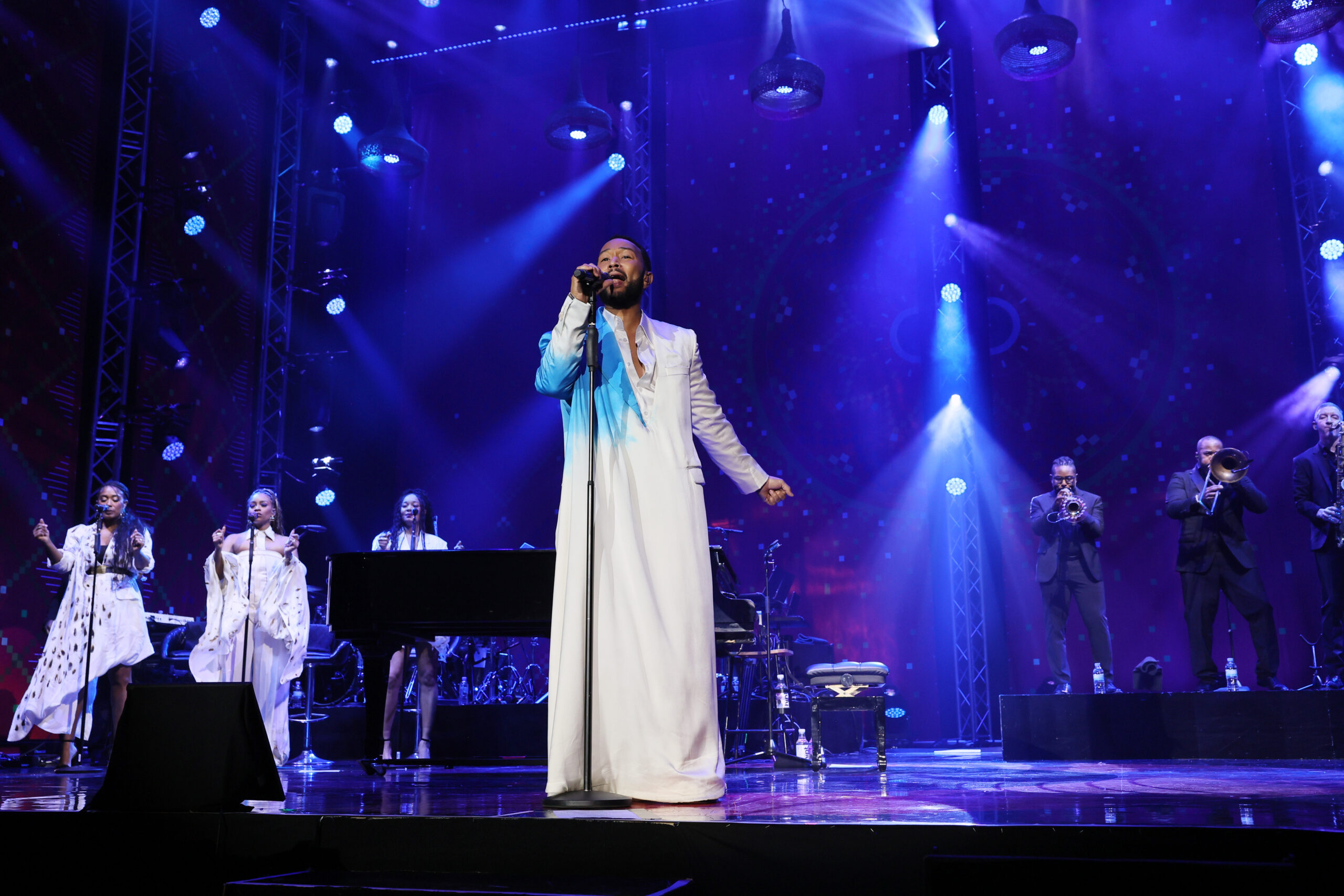Features
How Global Citizen’s Decade-Long Platforms Put African Music on the World Stage

A view of signage during Global Citizen’s Move Afrika: Kigali at BK Arena on February 21, 2025 in Kigali, Rwanda. (Photo by Jemal Countess/Getty Images for Global Citizen).
On the 29th of September in 2012, over 60,000 people gathered at Central Park, New York, for the Global Citizen Festival. It was the first festival to implement a trademark model where attendees earned free tickets by taking actions to combat poverty. To watch their favourite bands and artists like Neil Young, The Black Keys, K’Naan, John Legend and others, all they had to do was complete campaigns such as signing petitions and sharing information. The result was over $1.3 billion in commitments to end extreme poverty, malaria and polio. The festival marked the beginning of Global Citizen’s annual tradition of establishing music festivals as engines for social change.
From the first festival in 2012, Global Citizen realised that music could be a catalyst for social change around the world, including the African continent. African artists became part of Global Citizen’s music initiatives, connecting the continent’s music with millions of fans worldwide and showcasing Africa’s most dynamic talent alongside the world’s biggest acts to create awareness towards a cause.
“Global Citizen has helped shift African music from emerging to undeniably global, transforming artists from regional stars into household names and redefining Africa as a driver of global pop culture, not just a participant,” Ifeoma Chuks-Adizue, the Africa Managing Director at Global Citizen, says.
For over a decade, Global Citizen has been committed to showcasing talent from Africa to the world. From the inaugural 2012 festival, where Somali-Canadian artist K’Naan performed in New York City’s Central Park, to the landmark Mandela 100 Festival in Johannesburg in 2018, and the 2022 Global Citizen Festival in Accra, African artists have stood shoulder-to-shoulder with the world’s biggest stars. Beyoncé, Ed Sheeran, SZA and Usher have shared lineups with Wizkid, Tiwa Savage, Stonebwoy, Davido, Sarkodie and others.

Ifeoma Chuks-Adizue, Africa Managing Director at Global Citizen
“These flagship moments forced festivals, promoters and record labels to take notice, showing that African artists can headline, draw massive audiences and trend globally,” Ifeoma says. That visibility has also shifted the global perception of Africa itself. Afrobeats and Amapiano are no longer niche sounds but pillars of mainstream pop, soundtracking clubs, festivals and charts worldwide.
Reminiscent of the first festival in 2012, the movement continues this weekend in New York, where Ayra Starr and Tyla will share the Global Citizen Festival stage with Cardi B and Shakira. Ifeoma believes this “represents equity in action, placing two young African women not just in the lineup but at the forefront of one of the world’s most visible stages. It also signals that African women are not simply breaking into global music; they are defining its next chapter.”
In 2023, Global Citizen launched Move Afrika, an international music touring circuit focused on Africa. The inaugural event, Move Afrika: Rwanda, featured Kendrick Lamar as the headliner, alongside Rwandan artist Bruce Melodie and Tanzanian singer Zuchu. The second edition took place earlier in 2025, with John Legend headlining in both Lagos and Kigali. Nigerian artists Simi and DJ Consequence performed in Lagos, while Rwandan artists Bwiza and DJ TOXXYK took the stage in Kigali.
Through Move Afrika, Global Citizen is working to build a sustainable structure to support artists and the continent. It is a platform for economic transformation, driving investments, expanding infrastructure and building local capacity within host cities. The initiative creates jobs, provides skills training and fosters youth entrepreneurship. Since its launch, the tour has created over 2,500 jobs across Lagos and Kigali, with more than 90 per cent of show crews sourced locally. One of its ambitious goals is to create over 100,000 jobs by 2028.

John Legend performs onstage during Global Citizen’s Move Afrika: Kigali at BK Arena on February 21, 2025 in Kigali, Rwanda. (Photo by Jemal Countess/Getty Images for Global Citizen).
Global Citizen plans to deepen its work with governments to co-invest in infrastructure, raise live-event production standards and push for reforms that make touring across the continent easier. The organisation intends to build momentum behind Move Afrika, scaling it country by country while deepening its impact on Africa’s economy. Following successful stops in Rwanda and Nigeria, the intention is to return to both markets, while adding a third country and strengthening its commitment to local talent, vendors, governments and audiences across all markets.
“By 2028, we aim to be operating in five cities annually with concerts fully produced by skilled African teams, sparking long-term economic growth and creative empowerment. Move Afrika is not just focused on producing world-class shows; it aims to build a sustainable creative economy. [This involves ensuring that more African curators are in decision-making positions, fostering consistent inclusion that goes beyond just ‘special Africa events,’ and investing in infrastructure such as touring support.]”





















